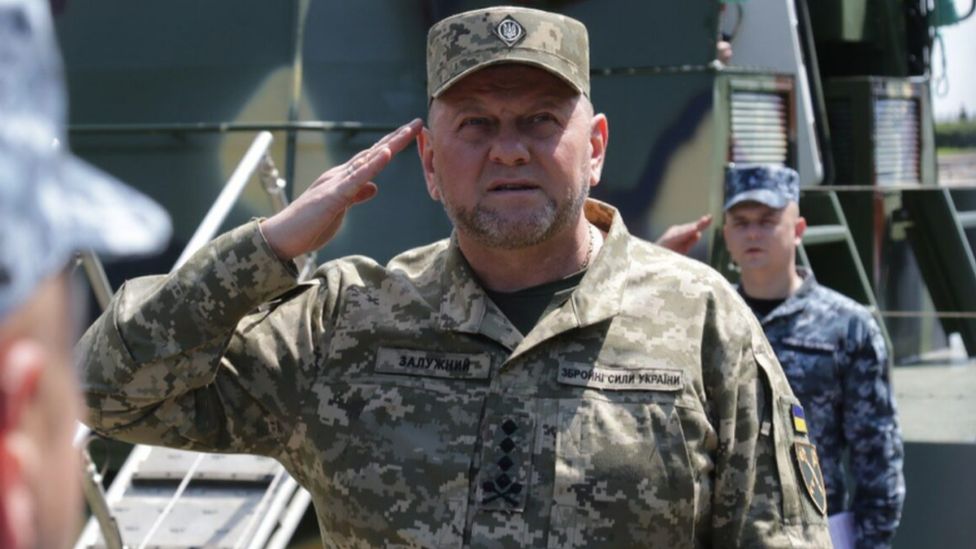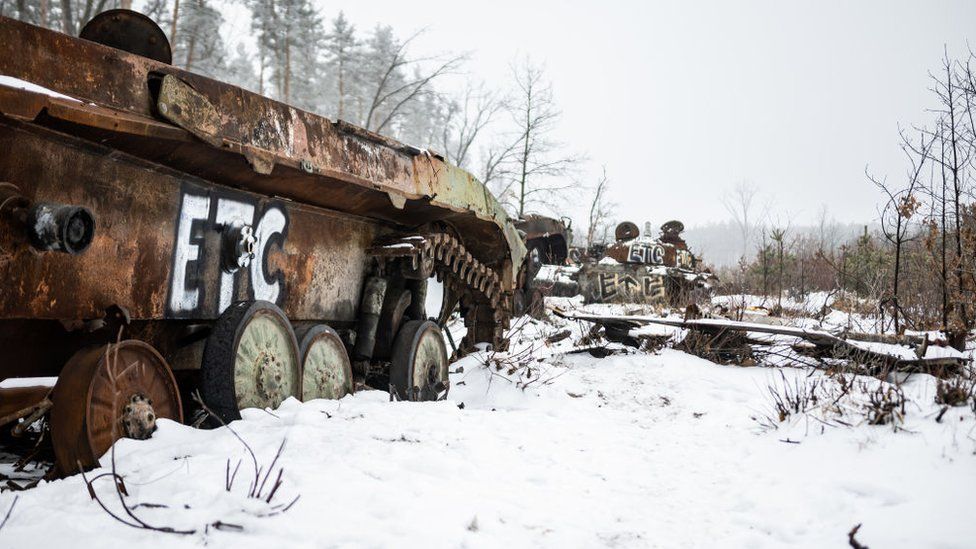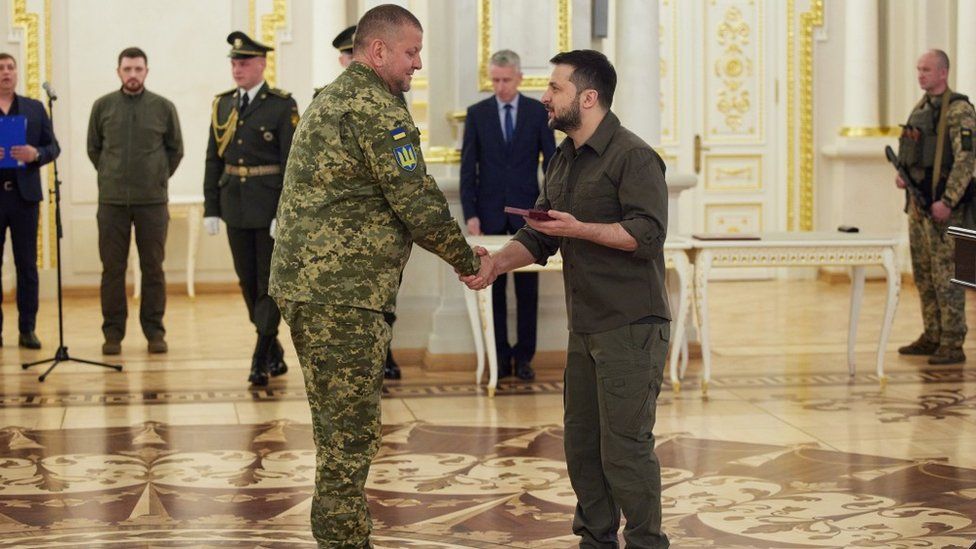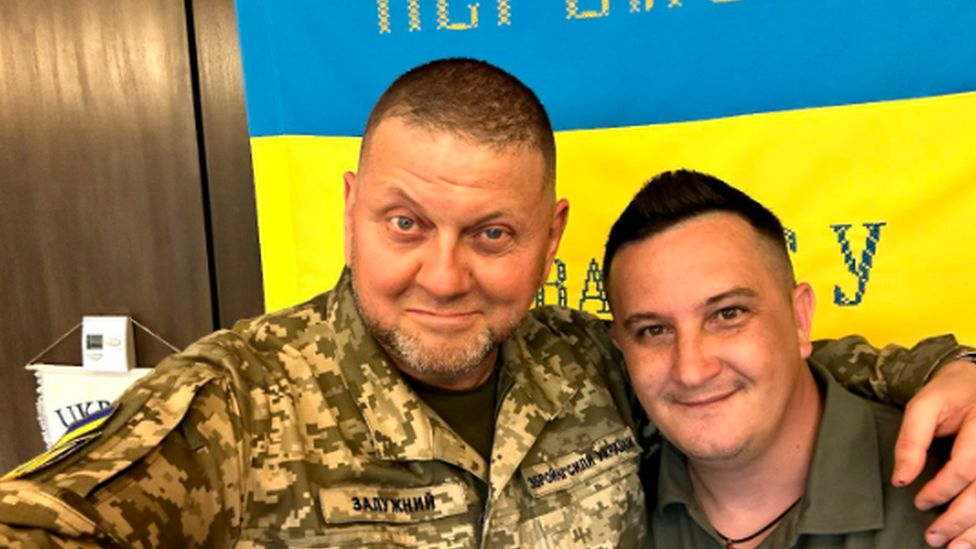Valery Zaluzhny, the man behind Ukraine’s counter-offensive
 Ukraine Army
Ukraine ArmyUkraine’s long-awaited attempt to take back the territories in the east and south of the country, occupied by Russia for the past 18 months, is now in full swing.
A key figure in planning and executing this operation is Gen Valery Zaluzhny, Ukraine’s 49-year-old commander-in-chief. Little known until recently, his popularity now rivals that of President Volodymyr Zelensky.
Gen Zaluzhny, or “our Valera” as friends and old classmates like to call him, was appointed commander-in-chief of the Ukrainian military in July 2021.
Those who know him well say the appointment, pushed through personally by President Zelensky, came as a surprise to the general and many others too as his promotion involved climbing several steps on the career ladder.
Zaluzhny was already known as an ambitious and modern commander, but also an unpretentious man who liked to joke with his subordinates and didn’t put on airs.
Within seven months he was leading Ukraine’s defence against full-scale invasion.
By 26 February 2022 it was clear that Russian troops were failing to “take Kyiv in three days”, which had initially seemed a likely outcome.
But the reality remained grim and Ukrainian authorities were calling on the public not to panic. Russian troops were advancing in the north, east and south of Ukraine and posed a considerable threat to the capital.

One idea floating among Ukraine’s top officials was to start blowing up bridges near Kyiv over the vast Dnipro river, to prevent the Russians crossing from the eastern left bank to the western right bank, where, among other strategic objects, the government quarter was situated.
They phoned Gen Zaluzhny for his view. “Under no circumstances are we to do that,” he is reported to have replied, at the time sitting in a smoke-filled bunker with other top brass.
“This will be a betrayal of both civilians and the military remaining on the eastern bank.”
The BBC has heard matching accounts from two sources involved in the episode that indicate this is what happened.
Many other crucial decisions followed and by early April 2022 Ukrainian troops pushed the Russian army back to the north and east of Kyiv.
Born into the family of a Soviet serviceman, Valery Zaluzhny once said he was always committed to distancing himself from the excessive hierarchy of the Soviet Army.
By the time he went to military school in the mid-1990s Ukraine was already an independent state.
While his textbooks at military college may have dated back to the Soviet era, he learnt about the reality of war first-hand. In 2014 he was appointed a deputy commander in an area of eastern Ukraine where the conflict with separatists, backed by the Russian army, was getting under way.
Colleagues we spoke to say that from the onset of his career he was keen on building relationships of trust with his subordinates as well as delegating command decisions.
Zaluzhny’s former aide who was by his side in the first days of the Russian invasion, Lyudmyla Dolhonovska, told the BBC he barely slept and kept in touch with military staff on the frontline.
“He spoke on the phone to his generals a lot, but the conversations were always focused and calm,” she said.
Analysts say the flexibility shown by Ukrainian units with junior officers able to make decisions on the battlefield gave them a considerable advantage over the top-heavy decision-making structures of the Russian army.
Some sources in the Ukrainian military even go as far as to say that it is the decisive commanders on the ground who are collectively responsible for Ukraine’s successes, while Gen Zaluzhny should only be credited with leaving them with the freedom to operate.
As the war ground on, President Zelensky played a key role in maintaining the morale of the Ukrainian public through his nightly addresses.
He pushed an image of strong governance while exerting pressure on foreign partners for financial and military support.
Gen Zaluzhny’s focus was on getting military strategy right.
After successful advances in late summer and early autumn, Ukrainian troops liberated large swathes of the Ukrainian territory in the east and south.
The commander-in-chief became a national hero, despite being rarely seen in public and even more rarely agreeing to interviews.
His name became synonymous with bravery and determination, and his reputation spawned anecdotes and turns of phrase.
“When Zaluzhny walks into an unlit room, he doesn’t switch on the light, he switches off the darkness,” one such phrase went.
His popularity ratings drew level with Zelensky’s, and conspiracy theorists began speculating on a possible rift between them.
There was talk of Zelensky replacing Zaluzhny as military chief or even of Zaluzhny challenging the president’s political leadership.
So far, neither has happened.

A source in the presidential administration told the BBC that “President Zelensky simply has no time for such jealousy as he is 102% preoccupied with getting military support for Ukraine from its partners”.
The two men appear quite happy to let each other get with their jobs.
Gen Zaluzhny told Time magazine last June that he did not bother to explain to Mr Zelensky all the minute details of military strategy.
“He doesn’t need to understand military affairs any more than he needs to know about medicine or bridge-building.”
Political analysts and sociologists have told the BBC that Zaluzhny’s popularity is natural in the current situation where Ukrainians need ways to boost morale. They also highlight his human touch.
Once he turned up at a wedding of a soldier forced to delay the ceremony because he had been sent to the front line at Bakhmut. Eventually the soldier was given a short period of leave to get the chance to marry his fiancée.
As talk of a forthcoming Ukrainian offensive intensified, Russian military bloggers began circulating rumours in mid-May that Gen Zaluzhny had been critically wounded or even killed.
This was picked up by Russian foreign intelligence chief Sergei Naryshkin who said: “Naturally, we have all information about the state of health of the commander of the Ukrainian Army but we will not disclose it.”
Col Anatoly Shtefan, who is close to Gen Zaluzhny, said that while Ukraine’s top brass poked fun at the rumours – which they described as the “height of Russian propaganda madness” – it was clear that Ukrainians were starting to worry too.
At the beginning of June, the Ukrainian Ministry of Defence published several photos of Gen Zaluzhny attending a military ceremony in Kyiv.

For now Valery Zaluzhny’s hero status among Ukrainians is secure, but with so many pinning their hopes on the commander-in-chief the future is likely to be complicated.
Even if the defence of Ukraine ultimately succeeds, Ukraine will face a harsh reality, warns sociologist Oleksiy Antypovych, and Zaluzhny may choose to steer clear of politics.
“It is highly likely that after the war Ukraine will face a severe economic crisis, if not a complete collapse. It will be a completely different ball game.”
Political analyst Mykola Davydiuk believes that if the military chief were to move into politics, he might succeed.
“While Zelensky is a leader who didn’t abandon Ukrainians, Zaluzhny was the one who defended them. It’s an organic narrative for him and there is a demand for it in our society.”
The BBC asked Gen Zaluzhny for an interview. He declined our request.


